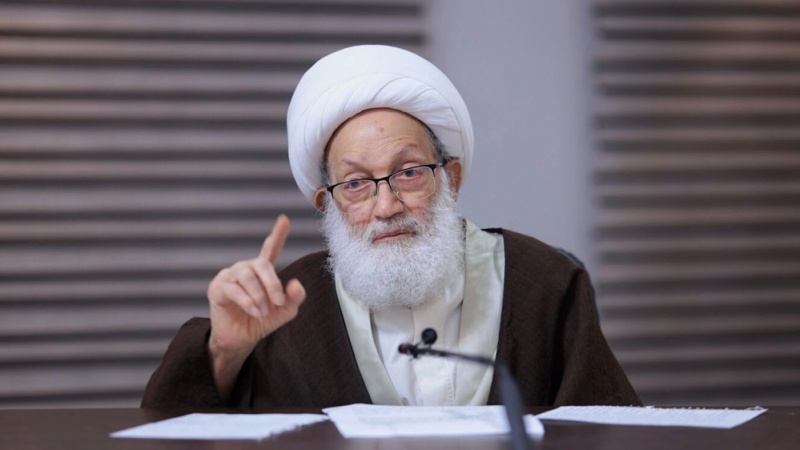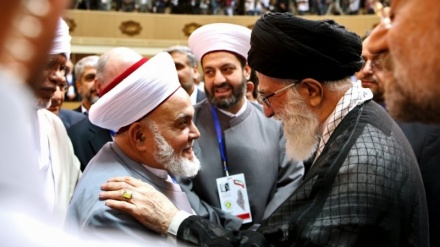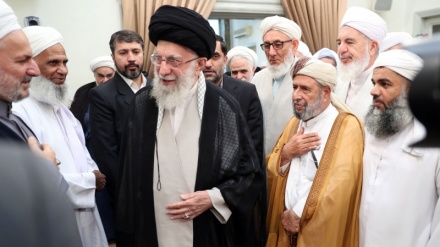Sheikh Qassim calls for free referendum in Bahrain to assess opposition’s weight
Bahrain's most prominent religious scholar Ayatollah Sheikh Isa Qassim has reacted to claims of the ruling minority regime of Aal-e Khalifa that Manama relies on dialogue and speech freedom, calling on the regime to hold a free referendum in the country to determine the weight and influence of the opposition.
“It is sufficient to reveal the weight of the opposition in Bahrain by holding a free popular vote, even on one of the issues of dispute between the people and the regime, and to show that the regime is on one path and the people are on another,” Sheikh Qassim said in an Arabic-language tweet.
“Take the topic of normalization or any other topic,” the senior cleric added, referring to the normalization deals that a few Arab countries signed to formalize their ties with the occupying regime of Israel.
Sheikh Qassim’s proposal for a nationwide referendum in Bahrain came after a parliamentarian claimed that the opposition was unpopular
Jamal Mohamed al-Fakhro recently said participation in elections would be a precondition for the opposition groups to be allowed to hold talks with Manama.
In another tweet, Sheikh Qassim censured Fakhro’s comments and said the Bahraini parliament is the “epitome of dictatorship,” adding that the opposition believed in a parliament which was “established on the free will of the people.”
Bahrainis rallied near the capital on Sunday to voice support for the prominent religious scholar and his repeated calls for the implementation of genuine reforms by the ruling regime.
The protest saw people holding up placards and pictures of the cleric, who has been stripped of his Bahraini citizenship for his support for anti-regime protests on the Persian Gulf island.
The protesters demanded that the regime's authorities abandon their heavily-discriminatory policies, and instead start recognizing the people as the source of the state’s power.
SS



